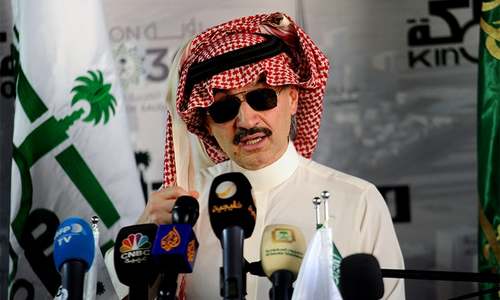WASHINGTON: Prominent Saudis held in what Riyadh dubbed an anti-corruption campaign were subjected to coercion and physical abuse, The New York Times reported on Monday, describing fear and uncertainty even after their release.
The newspaper said at least 17 detainees were hospitalised after facing abuse, while a Saudi general later died in custody with what witnesses said appeared to be a broken neck.
Many of the 381 suspects, including princes, ministers and tycoons, remain under military surveillance and some have been forced to wear ankle bracelets that track their movements, the newspaper said.
The revelations came ahead of a high-profile visit to the United States by Crown Prince Mohammed bin Salman, who orchestrated the crackdown in early November as he consolidates his grip on power.
Saudi officials did not immediately respond to a request for comment, but The New York Times quoted the government rejecting the abuse claims as “completely untrue”.
Officials have said they are in the process of recovering $107 billion seized in the crackdown, in the form of property, securities and cash, handed over by the suspects in exchange for their freedom.
The detainees included billionaire Prince Al-Waleed bin Talal, former National Guard chief Prince Miteb bin Abdullah, construction magnate Bakr bin Laden and media mogul Waleed al-Ibrahim of the regional MBC cable network.
Some of those held at Riyadh’s luxury Ritz-Carlton hotel were deprived of sleep, roughed up, interrogated with their heads covered and pressured to hand over large assets, the report said, citing relatives and associates of detainees.
Major General Ali al-Qahtani, a top aide to a son of the late King Abdullah, was among those held. He later died in custody, his corpse bearing signs of torture, according to witnesses quoted by the newspaper.
Published in Dawn, March 13th, 2018













































